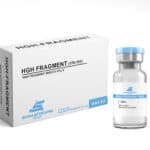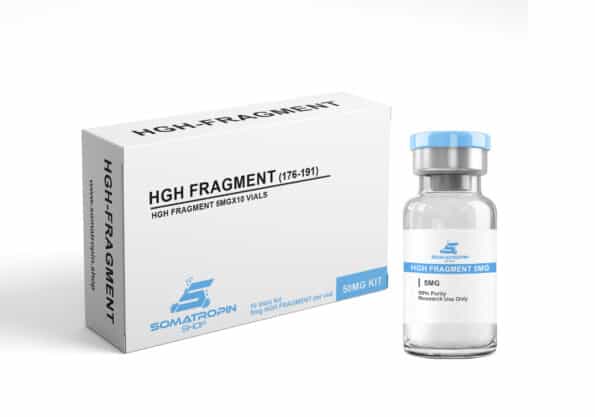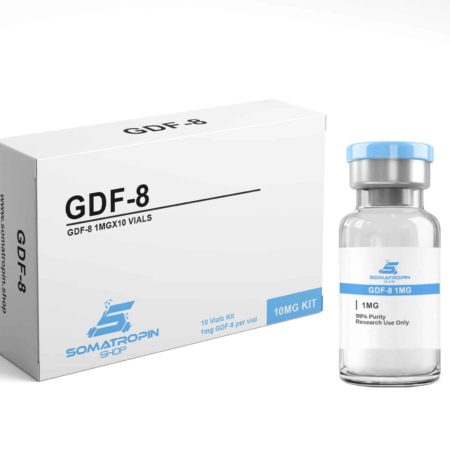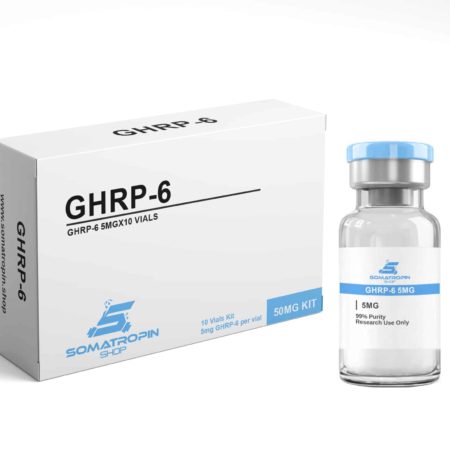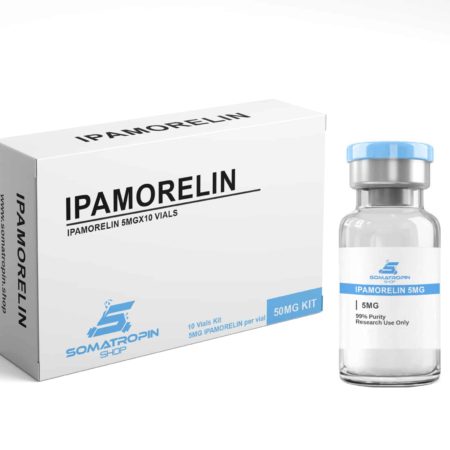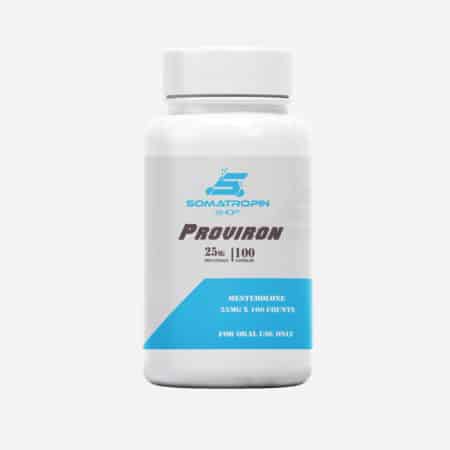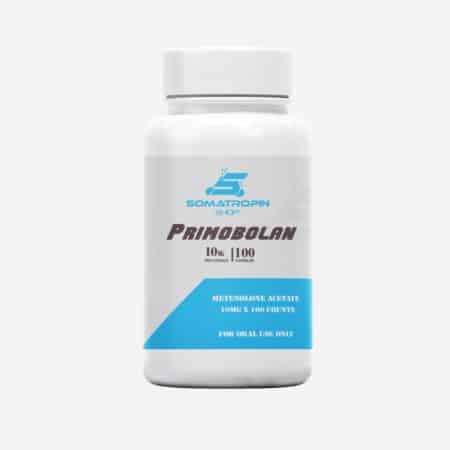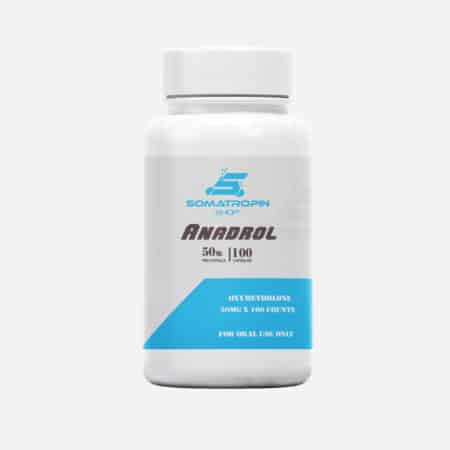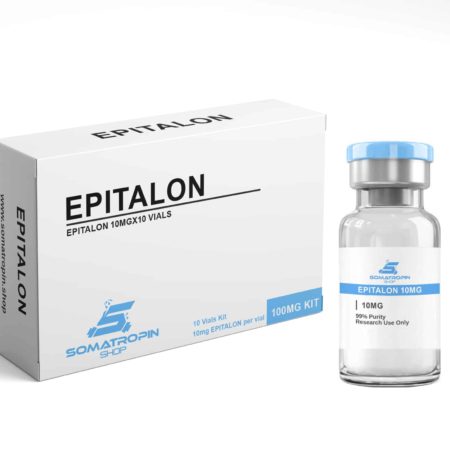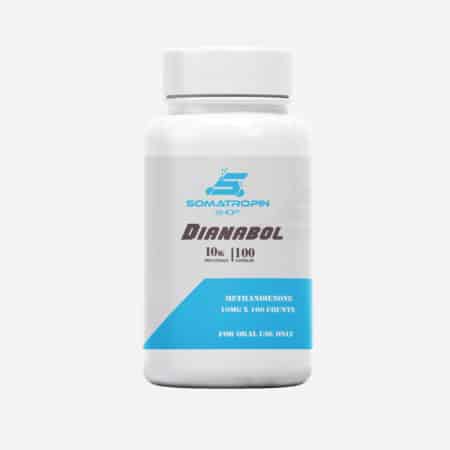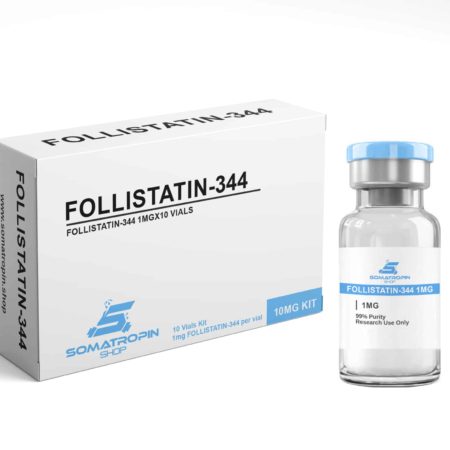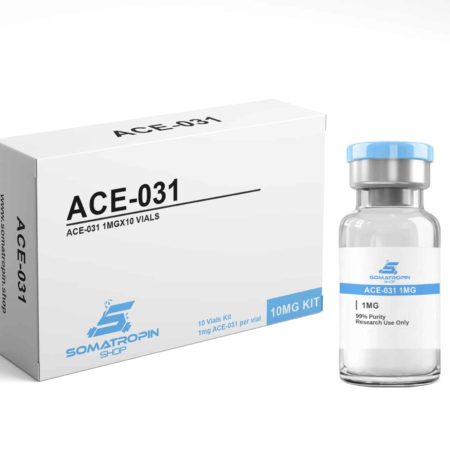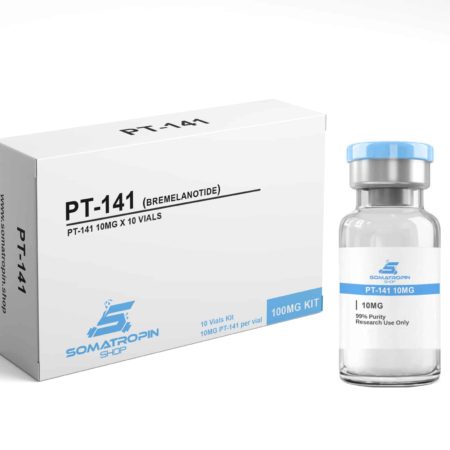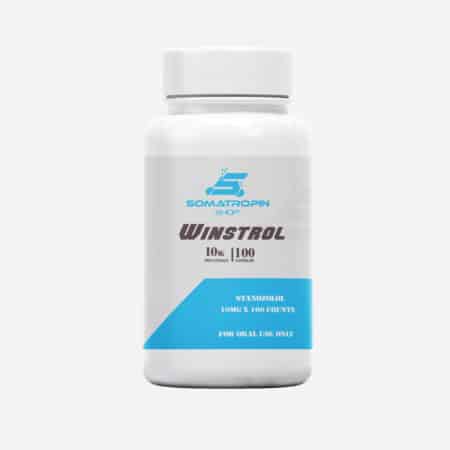HGH Fragment 176-191
$149 – $249
HGH Fragment 176-191 is a small, synthetic piece of natural human growth hormone (hGH). It is often referred to as the “lipolytic fragment” for its ability to boost fat loss. It has been shown to help lowers blood sugar levels and promote cartilage healing without increasing long bone growth, increasing IGF-1 levels, or altering insulin sensitivity.
All Peptides are shipped non labeled
What is HGH Fragment 176-191?
Fragment 176-191 (modified version of AOD-9604) is a small piece of Human Growth Hormone (HGH) that is sometimes referred to as the “lipolytic fragment.” Fragment 176-191 earned this latter name due to the fact that laboratory research has shown it to enhance fat burning, particularly in mice genetically engineered to produce large fat stores. Fragment 176-191 has been heavily researched in animal models because even while it preserves the fat-burning effects of hGH, it avoids some other effects of its parent protein such as increasing insulin-like growth factor-1 (IGF-1) levels, negatively impacting carbohydrate metabolism, altering insulin sensitivity, increasing long bone growth, and so forth. The targeted effects of fragment 176-191 make it useful for exploring human fat metabolism and may eventually provide the basis for developing anti-obesity medications.
HGH Fragment 176-191 Peptide Structure
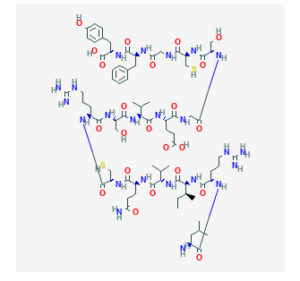
Sequence: Tyr-Leu-Arg-Ile-Val-Gln-Cys-Arg-Ser-Val-Glu-Gly-Ser-Cys-Gly-Phe
Molecular Formula: C78H125N23O23S2
Molecular Weight: 1817.12 g/mol
CAS Number: 66004-57-7
PubChem CID: 319360420
HGH Fragment 176-191 Effects
1. Lowers Blood Sugar
Research in animals has revealed that the c-terminal end of hGH is primarily responsible for the protein’s hypoglycemic (lowering blood sugar) effects. Testing of at least six different fragments derived from this section of hGH has shown that fragment 176-191 is the most effective synthetic derivative of hGH for lowering blood sugar levels. This effect is secondary to a sustained increase in plasma insulin levels. There is some interest in using it as a treatment for both prediabetes and type 2 diabetes.
2. Fat Burning and Weight Loss
Fragment 176-191 has earned the nickname of “lipolytic fragment” because testing in mice has revealed the peptide to have substantial fat burning and weight loss properties. It is thought that this action is mediated through an increase in production of beta-3 adrenergic receptors (β3-AR or ADRB3). Agonist action at ADRB3 is known to directly increase fat burning in adipose tissue and is also responsible thermogenesis in skeletal muscle. Mice that have been genetically modified to produce no ADRB3 do not respond to the lipolytic effects of hGH or fragment 176-191.
Studies show that the increased fat burning associated with fragment 176-191 directly correlates with energy expenditure and thus weight reduction, leading to a nearly 50% reduction in weight gain in obese animals over a three-week course. Interestingly, the weight loss effects were seen only in obese mice, with lean mice maintaining normal body weight, on average, even when exposed to fragment 176-191. These findings indicate that there are secondary regulatory pathways for lipolysis that override ADRB3 function when body weight is at or near ideal, opening up areas for additional research into energy homeostatsis.
3. Promotes Cartilage Regeneration
Though fragment 176-191 is primarily of interest for its lipolytic properties, the peptide is under investigation for other possible benefits. Of note, a 2015 article out of Korea revealed that it may be able to potentiate the effects of hyaluronic acid injections in promoting cartilage regeneration. Studies in rabbits indicated that weekly injections of fragment 176-191 increase laboratory measures of cartilage growth and that co-administration of the peptide with hyaluronic acid (HA) produces even more substantial effects. Similarly, the study found that fragment 176-191, both alone and in combination with HA, reduces disability associated with osteoarthritis. There is hope that this may lead to advanced therapies for osteoarthritis and may even eliminate the need for surgery in certain settings.
HGH Fragment 176-191 Safety Studies
There is some concern that the use of hGH or its derivatives for weight control may have unwanted side effects. This concern arises from the fact that studies of hGH have shown that long-term exogenous administration, while increasing lean body mass and decreasing adipose tissue, can also cause:
- Increased insulin resistance,
- diabetes,
- acromegaly,
- cancer,
- hypertension (high blood pressure), and
- edema (swelling).
In 2013, a study published in the Journal of Endocrinology and Metabolism evaluated six studies of fragment 176-191 to assess the rate and significance of negative effects associated with the peptide. The study, included only research that followed the randomized, double-blinded, placebo-controlled model of a phase IIb clinical trial in order to keep the highest possible standards of evidence. It found that IV and oral administration of it, when compared to placebo, led to no changes in:
- Physical findings,
- Laboratory parameters,
- Glucose levels,
- Glucose tolerance,
- Insulin sensitivity,
- IGF-1 levels, or
- Rates of adverse events (e.g. headache).
The results of this meta-analysis suggest that fragment 176-191 offers many of the benefits of hGH without the associated negative (and often serious) side effects. These findings further the argument for pursuing regulatory approval for use of it in the clinical setting, but also offer insight into the regulation of human growth, fat deposition, and energy homeostasis. These findings make it clear that it is possible to target fat loss without affecting energy homeostasis in other nutrient pathways, opening the door for a deeper exploration of human energy regulation and methods of manipulating it.
It is worth noting that while hGH has anabolic effects on muscle, it was specifically selected for its ability to avoid anabolism entirely. This is critical to ensuring that the peptide has targeted lipolytic effects and does not produce acromegaly or any of the other conditions associated with hGH administration. Studies in mice reveal that it1 does not increase cell proliferation.
HGH Fragment 176-191 Future Research
The primary area of research for fragment 176-191 is in weight loss and lipolysis where significant effort is being expended to learn how the peptide can be used to understand fat metabolism and energy homeostasis. The most active secondary area of research is in connective tissue regeneration, particularly cartilage repair.
| Dosage | 20mg (2mg x 10 Vials), 50mg (5mg x 10 Vials) |
|---|
Related Products
10mg Kit
1mg X 10 Vials
All Peptides are shipped non labeled
GHRP-6 is a synthetic ghrelin/growth hormone secretagogue agonist. It has positive effects on appetite, heart muscle cells, scar formation, and sexual motivation. Animal studies show this orally active growth hormone secretagogue also improves memory function and may help to thwart the neurological effects of Parkinson’s disease.
All Peptides are shipped non labeled
Ipamorelin is a pentapeptide, meaning that its structure is comprised of five amino acids. It is a secretagogue, and is considered to be an agonist, meaning that it possesses the ability to bind certain receptors of a cell and provokes a cellular response. Ipamorelin’s operational mechanics enables the peptide to stimulate the production of pituitary gland-based expression of secretions related to growth amongst animal test subjects. At the same time, the presence of the peptide has been shown to inhibit the production of a secretion known as somatostatin. Additionally, it has been determined that Ipamorelin has the ability to boost the production of IGF-1, or Insulin-like Growth Factor 1. Its presence plays a key role in the overall growth and repair of muscular and skeletal tissue.
All Peptides are shipped non labeled
Product packaging may change from time to time
Epithalon (Epitalon) is a synthetic derivative of Epithalamin and a potential modulator of telomerase, the enzyme that maintains and protects the telomere caps at the ends of chromosomes (strands of DNA). Research suggests that Epithalon induces telomere elongation and may fight off the effects of aging as a result.
All Peptides are shipped non labeled
Product packaging may change from time to another
10mg Kit
1mg X 10 Vials
All Peptides are shipped non labeled
ACE-031 is a synthetic protein made up of activin receptor type IIB and the immunoglobulin G1-Fc (IgG1-Fc). It binds to myostatin and related proteins within muscle, rendering them inactive. Research shows it to be useful in stabilizing muscle mass and strength in both primary muscle-wasting disorders and neuromuscular conditions
10mg Kit
1mg X 10 Vials
All Peptides are shipped non labeled
Available on backorder
PT-141, also called Bremelanotide (generic clinical name), is a heavily modified synthetic derivative of alpha-melanocyte-stimulating hormone. It has been tested in clinical trials as a treatment for both male/female hypoactive sexual desire disorder and acute hemorrhage. PT-141 is an agonist for the melanocortin-4 and melanocortin-1 receptors. Research shows that it promotes sexual arousal and stimulates the immune system.
All Peptides are shipped non labeled
Product packaging may change from time to time
Categories
Tags
- 100iu
- anti aging
- anti wrinkles
- bioregulator
- bioregulators
- Bodybuilding
- cjc
- cjc 1295
- cjc1295
- cycle
- fat loss
- genotropin
- gh
- ghrp
- gnrh
- hgh
- human growth
- human growth hormone
- hygetropin
- igf
- igf-1
- ipamorelin
- jenotropin
- kingotropin
- kit
- mgf
- nordictropin
- norditropin
- orals
- pct
- peptide
- peptides
- primo
- Primobolan
- roids
- selank
- semaglutide
- somatropin
- Stanozolol
- steroid
- steroids
- Tesamorelin
- testosterone
- Tirzepatide
- Winstrol

